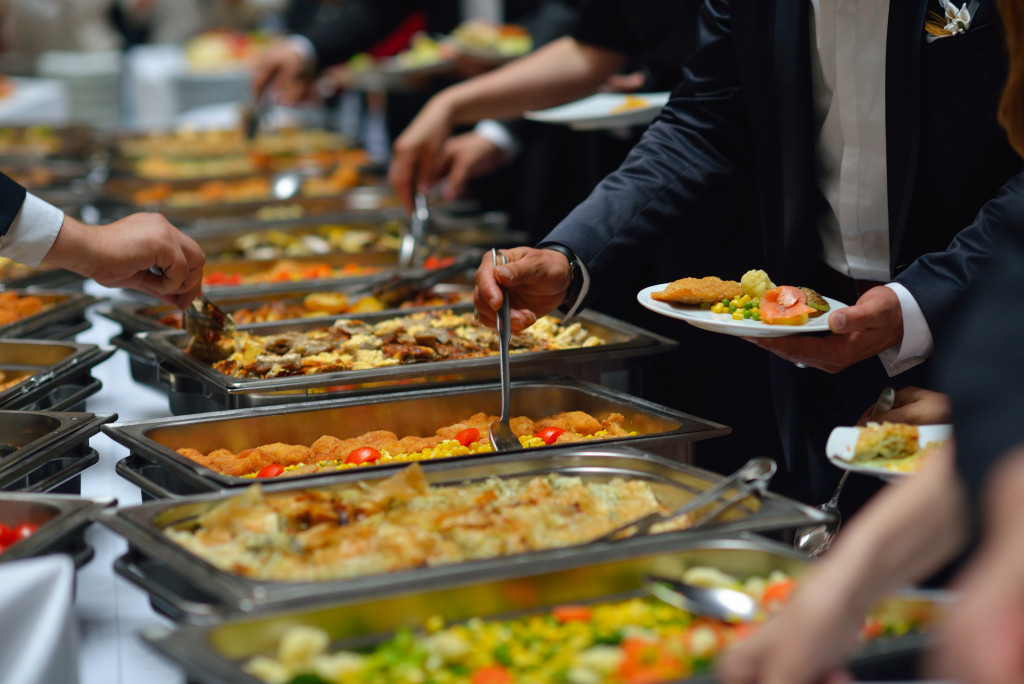The food industry in the United States is a massive and complex network of businesses that produce, process, and distribute food and beverages. The industry employs millions of people and generates trillions of dollars in revenue every year. It is one of the most critical sectors of the economy, and it has a significant impact on the way we live our lives.
There are many different parts of the food industry, including farmers and ranchers, processors, distributors, retailers, and restaurants. Each of these segments plays a vital role in bringing food to our tables. For example, farmers grow the crops and raise the animals that become our food, processors turn those raw materials into finished products, distributors deliver those products to stores and restaurants, retailers sell them to consumers, and restaurants cook and serve them.
One of the more exciting business models in the industry is catering. It’s certainly a business model you should try if you don’t want the headache of running a restaurant and the physical exhaustion of ghost kitchens. So here’s everything you need to know about running a catering business.
The Catering Market
The catering market is worth around $14 billion, making it one of the biggest sub-sector of the food industry. It’s also one of the fastest-growing segments, with annual growth rates of around 5%. That’s because more and more people are choosing to have events catered rather than cooking or ordering food themselves.
The catering market is segmented into three main categories: corporate catering, social catering, and event catering. Corporate catering is the largest segment, accounting for around two-thirds of the market. This type of catering is aimed at businesses and organizations, and it includes everything from lunch meetings to banquets. Social catering is for private individuals, and it has everything from dinner parties to weddings. Finally, event catering is aimed at special occasions like trade shows and conferences.
Types of Catering Businesses
There are two types of catering businesses: those that specialize in a particular kind of catering and those that offer various catering services. Specialized catering businesses typically have more success than generalist catering businesses because they can focus on doing one thing well. However, generalist catering businesses can be more successful if they offer a wide range of services.

Types of Catering Services
There are three main types of catering services: on-site catering, off-site catering, and drop-off catering. On-site catering is the most common type, and it involves setting up a kitchen at the event location and cooking food there. Off-site catering is when the caterer brings all their equipment to the event location and cooks there. Drop-off catering is when the caterer delivers prepared food to the event location.
Among the three, on-site catering is the most luxurious. But it’s also the most manpower extensive. You need a couple of experienced chefs to help your company out, which can take a decent chunk of your revenue. On the other hand, off-site and drop-off catering takes up less manpower and is far cheaper, making them good options for a starting entrepreneur.
How to Get Started?
If you want to get started in catering, you’re going to need a functional kitchen.
Invest in a Professional Kitchen
If you’re serious about catering, you need to invest in a professional kitchen. This will allow you to cook food on-site, which is the most desirable option for clients. It will also allow you to prepare food in advance and store it in a temperature-controlled environment.
If you want to save up on money, you can use the kitchen in your home. Just make sure that you install a small residential elevator if your kitchen is on the second floor. This will make a difference in your efficiency and productivity, which are essential in the catering business.
Get a Catering License
In order to provide catering services legally, you need a catering license. This is a document that proves that your company is authorized to provide catering services. It’s also a way to protect your business from legal issues down the road.
The process of getting a catering license varies from state to state. In most cases, you need to submit an application and pay a fee. You may also be required to take a food safety course as well.
Register with the Health Department
In order to prepare and serve food, you need to register with your local health department. This will allow them to inspect your kitchen and make sure that you’re following all the necessary food safety regulations.
There are two types of registration: permanent and temporary. Permanent registration is for businesses that plan on operating permanently in the jurisdiction. Temporary registration is for businesses that plan on operating temporarily in the jurisdiction.
Most health departments require you to submit an application and pay a fee.
Get Insurance
Catering is a risky business, which is why it’s important to get insurance. There are several types of insurance that you should consider: general liability insurance, product liability insurance, property damage insurance, and workers’ compensation insurance.
General liability insurance protects your business from financial damages caused by accidents or injuries. Product liability insurance protects your business from financial damages caused by defective products. Property damage insurance protects your business from financial damages caused by fires, floods, or other natural disasters. Workers’ compensation insurance protects your business from financial damages caused by workplace accidents.
Catering is a great business opportunity for entrepreneurs who want to start their own company but don’t want to have the headaches of a restaurateur. So if you like food, try out a catering business!

